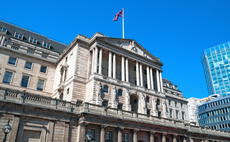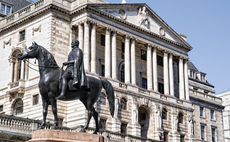interest rates
Industry
Remains at the BoE’s target level
Investment
Investors expect good returns from real assets this year, especially in real estate equity and infrastructure, according to Aviva Investors’ Real Assets Study 2024.
Investment
Despite their inflation protection and diversification qualities, real assets’ vulnerability to sustained high interest rates is the top concern for most investors according to the Aviva Investors’ Real Assets Study 2024.
Industry
Interest rates held at 5.25% for sixth time in a row
Industry
Bank's decision marks fifth consecutive hold of rates at current level
Industry
Bank forecasts interest rates to be above 3% in 2027
Industry
Reuters poll of economists finds majority do not expect rates to rise next week
Industry
Interest rate rise was in line with Fed and ECB
Investment
Robert Scammell looks at interest rates and inflation and the impact on pension funds











